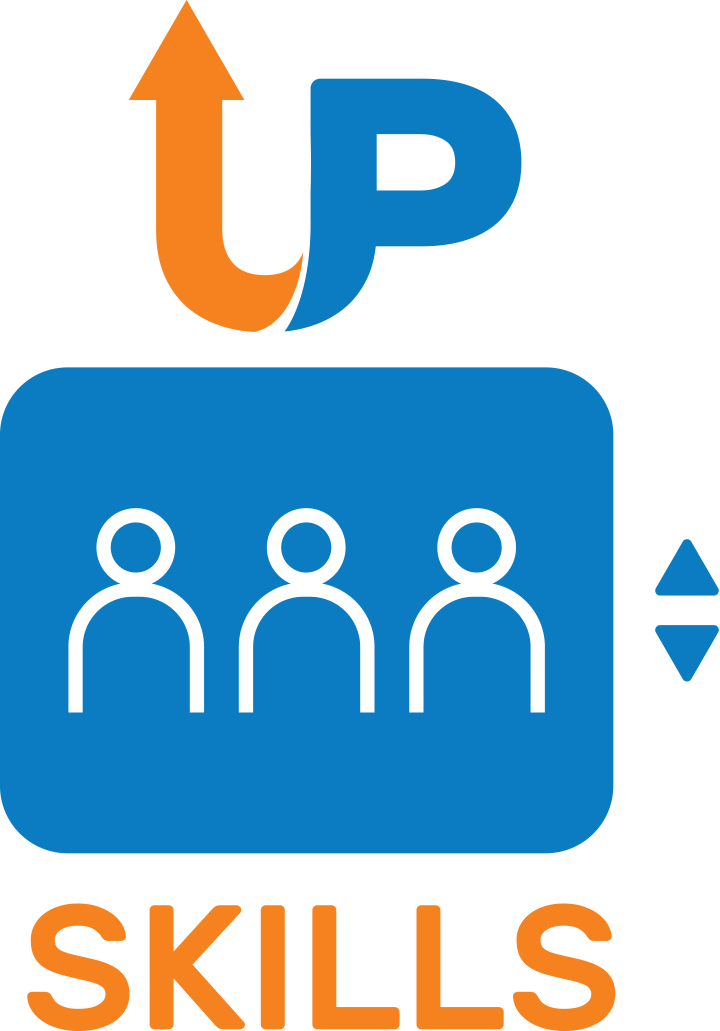Research-Based Teaching
RBT courses piloted within UPSKILLS
In order to consolidate with our best practices and guidelines for research-based teaching, the UPSKILLS consortium partners developed and piloted sixteen RBT courses (at all levels, from BA to PhD). On this page, we are sharing the descriptions of these courses*, which can be used as examples of best practices for the implementation of our guidelines within specific course topics. Lecturers who would like to focus on thematic domains related to those targeted by our courses can use these descriptions as their starting point when creating their own courses.
* For ease of navigation, in many descriptions, the link between the general topic and the specific topic is described in green in the topic overview.
The UPSKILLS RBT course descriptions are licensed under a Creative Commons Attribution 4.0 International License.
A. UPSKILLS meets Hypespacing: RBT courses and a specific research project
In this section, we can find the descriptions of course which were taught at the University of Graz in connection with the Austrian-Slovenian research project “Hyperspacing the Verb: The interplay between prosody, morphology and semantics in the Western South Slavic verbal domain”. This project has been carried out between 2019 and 2023 at the Slavic department of the University of Graz (in collaboration with the University of Nova Gorica, Slovenia).
The specific course topics presented here are therefore related to Slavic morphophonology and morphosyntax. One of the deliverables of the Hyperspacing the Verb project is the database WeSoSlaV (the Western South Slavic Verb Database), consisting of over 8000 WSS verbs annotated for a range of relevant properties, including aspect, argument structure, conjugation classes, affixes, prosody. In order to develop and exemplify some ways in which research projects can be instrumentalized in research-based teaching, we developed a series of research-based courses which centrally employ WeSoSlaV in its research orientation.
There are essentially three ways in which WeSoSlaV was employed in these courses. One is through research activities conducted to supplement it with data it does not yet contain. The second role that WeSoSlaV played was that of a main source of information to be computed. Finally, we also designed courses which took WeSoSlaV as the starting point, drew from it some relevant quantitative insights, and then developed in a new direction which does not speak back to the database – whether by focusing on theoretical issues, or by going into new quantitative domains.
All these three implementations share some content – that related to the use of the database (e.g., retrieval, various different representations of the data and reorganizations of their representation, techniques for excerpting and deriving quantitative information as well as for its statistical computation), yet they all also involve different embedding of skills, and different additional research practices.
WeSoSlaV plays an important role in providing readily available material that would otherwise take too much time and effort to prepare for the type of courses that are taught at the BA and MA levels, and any building on top of that would be impossible. It also gave the students the opportunity to work in a real research environment, participating in the entire process as pursued in the project, as well as a chance to interact with the developers in the process of the development of the database. Finally, especially in those courses which also contributed to the enrichment of the database, or to deriving non-trivial insights, the students had the experience of seeing the results of their research materialized in an ongoing research project.
Part of our intention in designing the courses was exactly to diversify all these various aspects, and illustrate the broad range of ways in which a research result as simple as an annotated database of verbs from two languages can be instrumentalized to serve a variety of different purposes, i.e. in a variety of different research skills and techniques, of different levels of grammar and individual phenomena, and also of various types of empirical and theoretical reasoning and argumentation.
B. Beyond Hyperspacing: Standalone UPSKILLS RBT courses
In this section, we present the descriptions of courses which are not directly related to some specific project and focus instead on subjects related to the research of their individual instructors.

